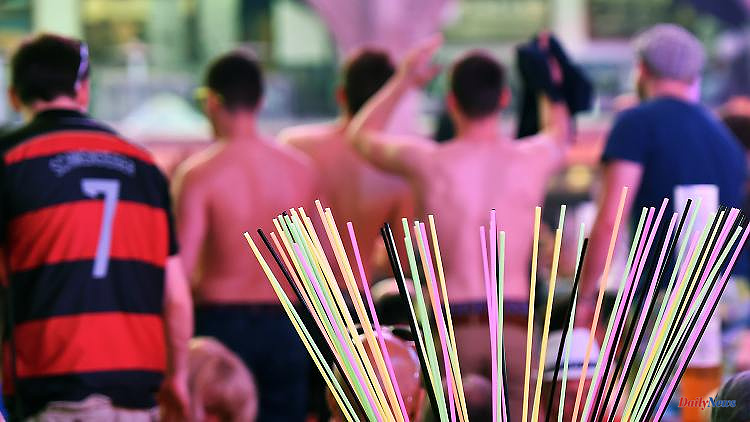In the fight against numerous violations of the "anti-booze tourism law", the government of the popular party stronghold Mallorca is taking tough action for the first time: Eight bars are being forced to close for the time being. And it shouldn't stop there - more than 90 other preliminary investigations are already underway.
Many Mallorca visitors know the disturbing scenes: alcohol is sometimes served or sold to minors even when they can hardly stand. Bars and dance halls send scantily clad young girls in bikinis or underwear onto the streets to lure customers. Because of such and other violations of applicable laws, eight bars on the Spanish holiday island are now being closed as a precaution, as the regional government of the Balearic Islands announced. Four have already been closed, the rest are pending execution. All affected restaurants are threatened with permanent closure.
The authorities had never been so tough against the debauchery in the region. Similar measures against wild parties only existed in the summer of 2020 in connection with the pandemic to prevent the spread of the corona virus. The basis for the current procedure is the so-called anti-drinking tourism law, which was passed by decree at the beginning of 2020, but which has only actually been applied in practice for about a month and a half due to Corona.
According to the information, four of the affected bars are located on the "Ballermann" on Playa de Palma, which is particularly popular with German visitors, as the Ministry of Tourism announced. The closure is still pending here. The bars are accused of serving alcohol to minors in one case and serving alcohol outside of the approved times in three cases. The other four affected restaurants are said to be in the British holiday and party stronghold of Magaluf. In two cases, women were humiliated.
In addition to the closures, investigations into violations of the law had been initiated in more than 90 cases, it said. "It is the first time that bars in the Balearic Islands have been closed for such reasons," said Tourism Minister Iago Negueruela. We will continue to ensure that the law is observed. The authorities did not say whether the affected premises are bars, discotheques, restaurants or beach kiosks. For data protection reasons, this information and the names of the restaurants should not be passed on, a spokesman for the Ministry of Tourism told the "Mallorca Zeitung".
But what is being said, and in no uncertain terms, is that these measures will not stop there. There will be more forced closures and other sanctions by the end of the summer, Negueruela said. "We will act decisively, because our destination has said basta to a certain type of tourism," emphasized the lawyer and socialist politician. Meanwhile, he was also realistic. You will continue to see many excesses in Mallorca. Because: "It would be unfair to demand that behavior that has existed for 20 years be eradicated in just a month and a half."
The decisive action is causing a stir on Mallorca and is mostly welcomed by the citizens and politicians of the affected communities. One is "very satisfied" with the measures, said the city councilor for public safety in the municipality of Palma, Joana Maria Adrover. In an online survey by the digital newspaper "Crónica Balear", the vast majority of participants said they were "delighted" about the forced closures.
The "anti-booze tourism law" was passed in 2020 to combat excesses on Playa de Palma, in Magaluf and also in Sant Antoni on Ibiza. The Balearic Islands have been trying to change their image for years. With various laws and initiatives one wants to increase the quality of the tourist offers and ban the so-called drunk vacationers. In March, for example, numerous restaurateurs and other entrepreneurs in Playa de Palma signed a code of conduct aimed at combating excessive alcohol consumption, racism, violence and drug use.












